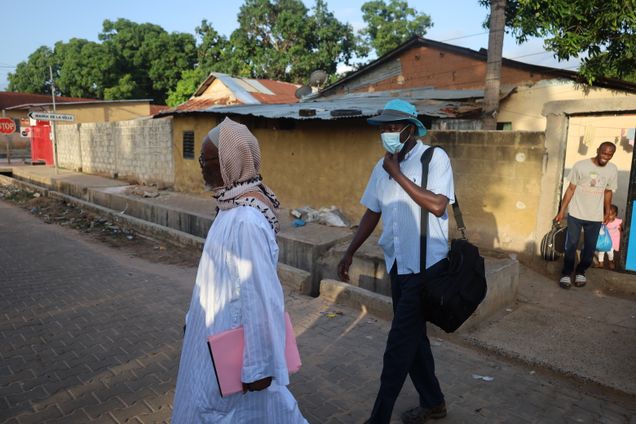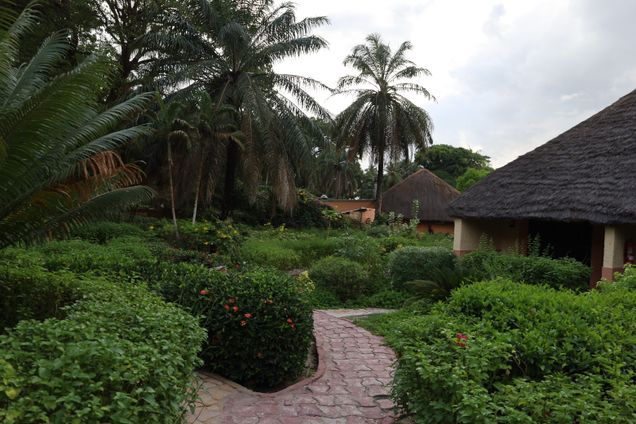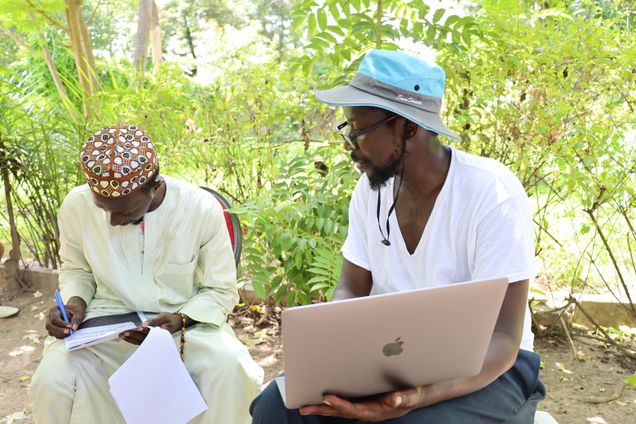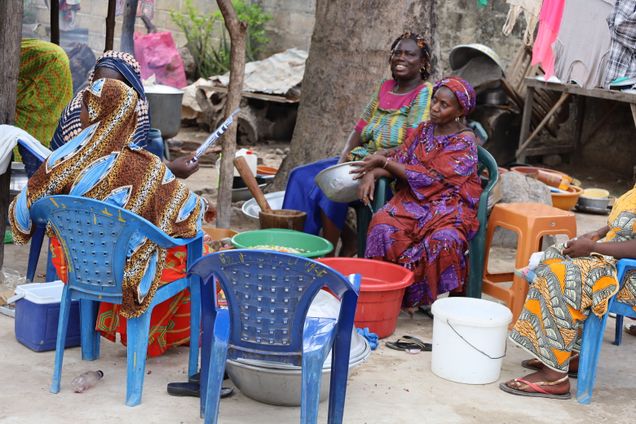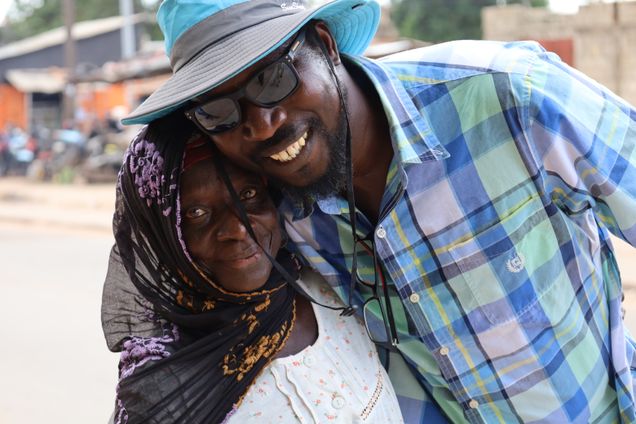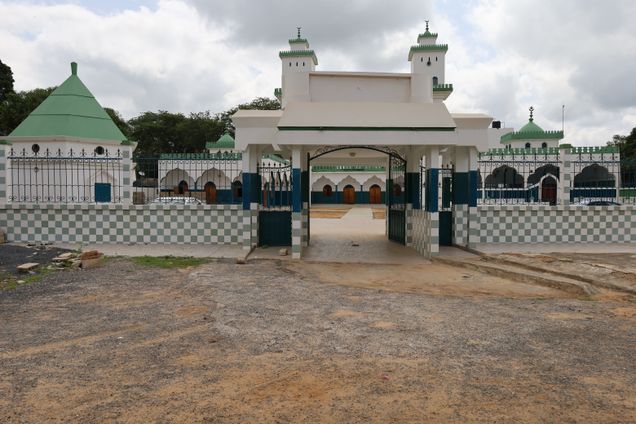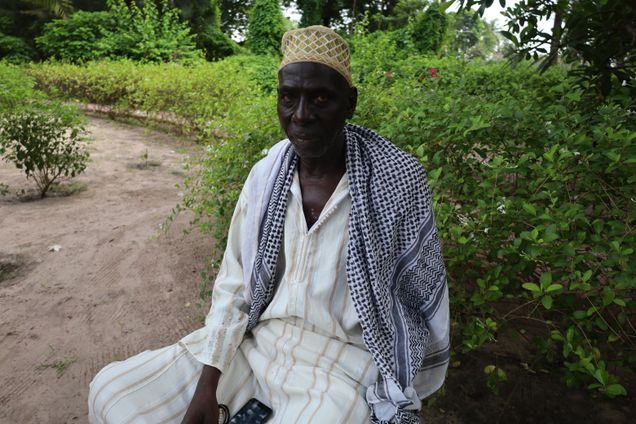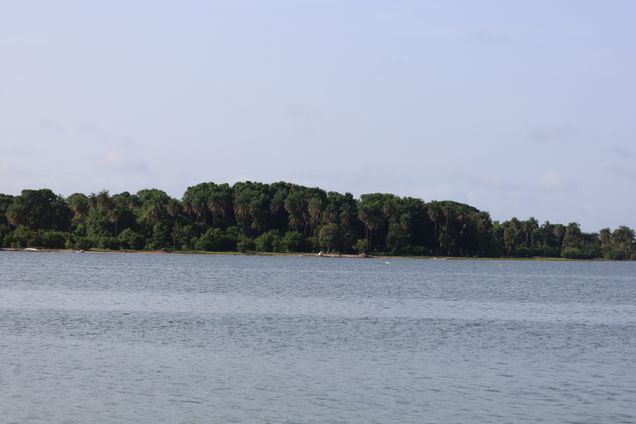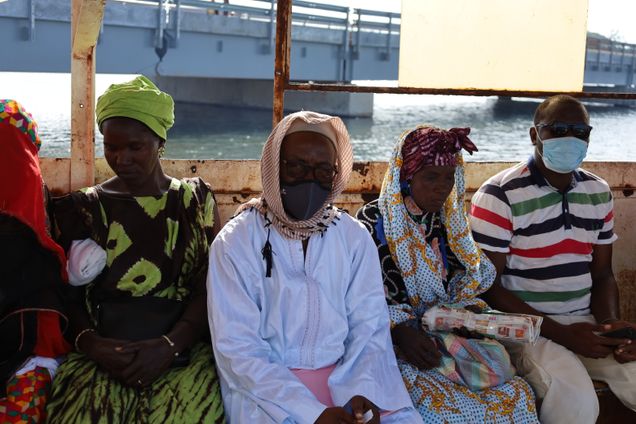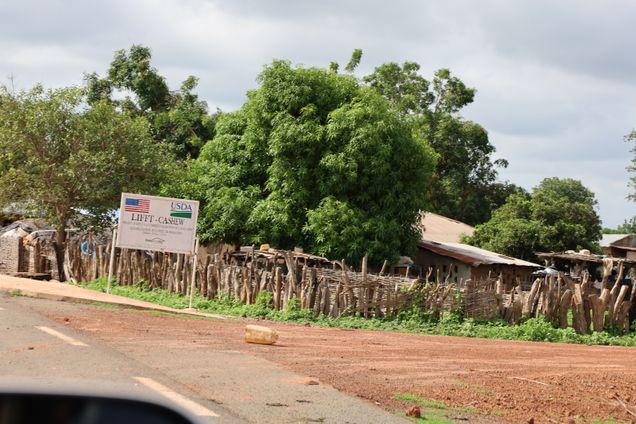Unit 6: Boubacar Diatta
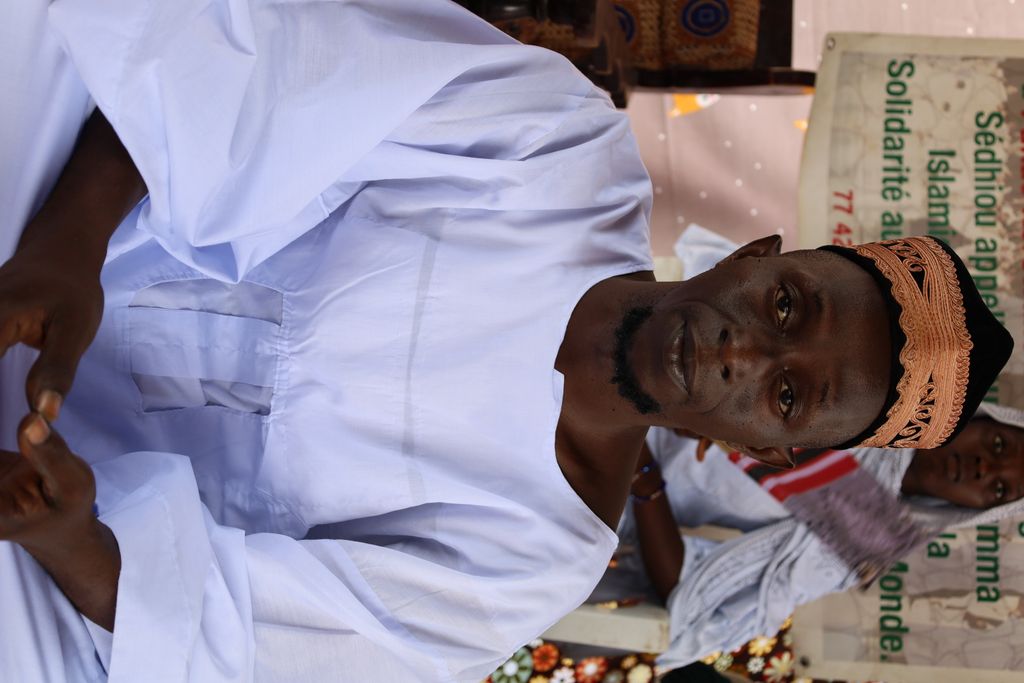
Metadata
| Title | Conversation with Boubacar Diatta |
| Interviewer | Ibrahima Yaffa |
| Subject | Mandinka Ajami poetry, performing Ajami poems, commemoration of mother’s care and dedication |
| Content | Boubacar Diatta was born and raised in Pakaawu-Kerewaan where he began his Quranic studies. Later, he moved to Jaara-Barookundaa in The Gambia where he completed his advanced Islamic education. He did not learn Mandinka Ajami formally, but through reading the Mandinka Ajami writings of the elders while he was attending Quranic school. Since then he has specialized in Mandinka Ajami poetry singing by imitating old poetry singers. He now serves as a Quranic teacher and a well-known Mandinka Ajami writer, poet, and singer in his area. He has been invited to perform at religious ceremonies in many countries, including Spain, The Gambia, Mali, and Guinea Bissau. In this interview, Mr. Diatta talks about the poems he has written, and performs a poem that he wrote a few days after the death of his mother, commemorating her wisdom, dedication, and care. He talks about the deeply emotional impact that this poem makes on the listeners. |
| Language | Mandinka |
| Script | Mandinka Ajami |
| Location | Ziguinchor, Senegal |
| Pedagogical content/application | Includes relevant linguistic, stylistic and cultural skills as identified in our assessment guidebook/ ACTFL guidelines |
| Access condition and copyright | These materials are subject to copyright and are distributed under the terms of the Creative Commons Attribution-NonCommercial 4.0 License, which permits non-commercial use, distribution, and reproduction in any medium, provided the original author and source are credited. For use, distribution or reproduction beyond these terms, contact Professor Fallou Ngom (fngom@bu.edu). |
| Contributors | Fallou Ngom, Daivi Rodima-Taylor, Ibrahima Ngom, Mamadou Aw Ndiaye, Ousmane Cisse, Ablaye Diakite, Alison Parker, and Frank Antonelli. |
| Required citation information | Fallou Ngom (PI), Daivi Rodima-Taylor, Ibrahima Ngom, Mamadou Aw Ndiaye, Ousmane Cisse, Ablaye Diakite, and other contributors. 2022. “Conversation with Boubacar Diatta.” https://sites.bu.edu/ria/mandinka/mandinka-unit-6/ |
Videos
Mandinka with English Subtitles
Mandinka with Latin Script Subtitles
Community Images
(click on the image for a larger view)
Pedagogical Activities
Glossary
- Adamadiŋ, haadama diŋo: Literally “child of Adam,” human being
- Araamisoo: Thursday, from Arabic al-khamīs
- Baa: River, sea
- Baloo: Body
- Banta: Ended, finished, died (synonyms faata and faatuta)
- Batu: To wait, adore, worship (Ala batu, to worship God)
- Bula maraa: Left-hand, left-hand side
- Bulu, buloo: Hand, arm, branch, tributary
- Fanoo keta: Dawn, daybreak
- Futata: Arrived, reached a destination (from ka futa)
- Jaameŋo: Mosque
- Jaaraloo, jaararloo: Healing, treatment, curing, therapy
- Juma luŋo, Arjumoo: Friday (from Arabic jumʿa)
- Ka a baayi, baay: To stop, to cancel
- Ka a jiibee, juubee: To see, inspect, observe, look after, pay a visit to someone
- Ka a kisi-kisi: To research, investigate, inquire
- Ka a kumandi: To call, sound, invite, ring
- Ka a maakoyi: To help, assist
- Ka a samba: To take away, carry away, bring away
- Ka a waafi: To sell
- Ka baŋ: To end, finish, die (synonyms ka faa and ka faatu)
- Ka bori: To run, flee
- Ka futa: To arrive, reach a destination
- Ka karaŋ: To read, study
- Ka kumboo: To cry, weep, shed tears
- Ka lenka: To ring, shout, call out
- Kafuñoo: Friend, associate, companion
- Kaju Kuloo: Cashew nut
- Kaju, Kajuwoo: Cashew
- Kanuntee: Beloved one
- Kiitiyo: Court, decree, ruling
- Kisi-kisi: Investigation, research, inquiry
- Kisi-kisilaa, kisikisilaa: Researcher, investigator
- Kuntiyo: Leader, president
- Kuŋo: Head
- Lookuŋo: Week
- Mobayiloo, telefonoo: Cell phone (from English mobile phone)
- Mooroo: “Spiritual leader, teacher, sir,” a male honorific
- Muumee: All, whole, entire, entirety
- Naa: Mother (synonym baa, baamaa)
- Nataali-kee-laa: Photographer
- Nataali, nataaloo: Photograph, image
- Saasaa: Illness, sickness, disease
- Saayaa saŋo: Death date, death year
- Safeeri tiyoo: Manuscript owner, document owner
- Safeerilaa: Writer, author
- Somandaa: Morning time
- Suukuulaa: To chant religious songs or poems, compose religious poetry
- Suukuulaalaa: A religious poetry chanter, poet (plural suukuulaalaalu)
- Suukuwo: Religious chant, religious song, chanting
- Taamalaa: Traveler, walker, wanderer
- Tabiroo: Cooking
- Teema: Middle
- Teemankoo: The one in the middle
- Teerimaa: Best friend
- Timmata: Fulfilled, completed, perfected (from ka timma)
- Woosii: To complain, express a concern, plead, appeal
- Yaamaroo: Advice, wish, guidance
Notes
- Kambiyaa, Gambiyaa: “The Republic of The Gambia.” Because the Mandinka language does not have the consonant g, many Mandinka monolingual speakers with limited or no exposure to languages with the consonant g pronounce Gambia as Kambiyaa. Those exposed to languages with the consonant g such as Wolof, French, English, and others may pronounce it as Gambiyaa.
- Kammoo, gammoo: Similar to the note above, kammoo and gammoo are both used in Mandinka communities. It is used to refer to the celebration of the birthday of Prophet Muhammad. Held in the evening, the event includes declamations of religious poetry and discussions about the life, virtues, and teachings of Prophet Muhammad by prominent local preachers.
- Sunguruguru: The Marsassoum River, which is also called Soungrougrou in the French-based spelling, is a tributary of the Casamance River in southern Senegal.
- Tili taŋ-naanoo: “The 40th day.” This refers to the ceremony of prayers for a deceased person held on the 40th day of their passing. In Senegambian Muslim communities, the ceremony includes recitations of the Quran, food served to the participants, and prayers for the departed.
Exercises:
Comprehension || Writing || Listening / Speaking and Conversation || Cultural Competence
Comprehension: Video
Comprehension: Image
Writing
Listening / Speaking and Conversation
- Podkastoo niŋ Widewoo: Podkastoo ke ñiŋ widewoo kaccaa-kuma-kaŋoolu kunna, waraŋ i ye widewoo sutuŋoolu ke minulu be widewoo la kaccaa-kuma-kaŋoolu koyindi la.
Cultural Competence
- Teyaataroo safee aniŋ Mandinka safeeri-kuloolu la muŋ be aada kummaayaariŋo yitandi la.
